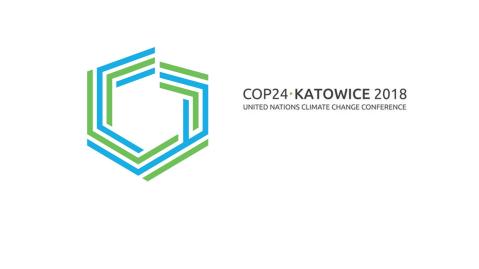ICAP Side Events at COP 24 in Katowice
In cooperation with partner jurisdictions and organizations, ICAP organized or presented at a number of side events on carbon markets during COP24 from 3-15 Dec. 2018.

When Worlds Meet: Interactions between Domestic Carbon Pricing, UNFCCC and CORSIA
TUE DEC 4, 17:00 - 18:15, Benelux-EIB Pavilion
Organizer: ICAP
Emission trading systems interact with international regimes in several ways. When ETSs link, the resulting flows in abatement may need to be accounted for under the Paris Agreement. Allowances from ETSs may also be used towards CORSIA compliance in the future. Finally, international and domestic offsets may be used towards ETSs and other international targets.
This event brought together researchers, practitioners and government representatives to discuss the present and future of ETS interactions with international frameworks. Presentations included:
(a) Accounting for linked ETSs under Article 6;
(b) Update on CORSIA state of play;
(c) Domestic and international offsets for ETS use post 2020.
Speakers: Lambert Schneider (Stockholm Environment Institute), Laurence Mortier (Federal Office for the Environment, Switzerland), Lorna Ritchie (Department for Business, Energy & Industrial Strategy, United Kingdom), Brad Schallert (WWF-US). Moderated by Stephanie La Hoz Theuer (ICAP Secretariat)
Potential of Carbon Pricing in Transition to Low-Carbon Economy
WED DEC 05, 10:00-13:00, EU Pavilion
Organizers: Institute for Climate Economics, Ecofys, ICAP, Climate Focus, Carbon Market Watch, World Bank Group, Agence Française de Développement, IETA, CDP, The Generation Foundation, Climate Outreach
Carbon Pricing policies significantly reduce mitigation costs and unlock economic opportunities of transition. Since the first carbon pricing instrument was launched in 1990, 50 initiatives now operate worldwide.
At this side event a diverse set of speakers presented achievements and recommendations for carbon pricing instruments under the Paris Agreement, including the potential of these instruments to support resource mobilization in developing countries. The first panel presented a state of the art of carbon pricing initiatives worldwide. The second panel focused on fostering effective engagement on carbon pricing for government agencies and civil society, through both effective communication and adapted revenue use. The third roundtable presented perspectives for internal carbon pricing to align investments and procurements with the Paris Agreement. The last panel provided perspectives around future carbon markets under Article 6 of the Paris Agreement.
Speakers: Maja-Alexandra Dittel (European Commission), N.N. (Ministry of Environment and Climate Change, Canada - TBC), Duan Mao Sheng (Tsinghua University, China), Darragh Conway (ClimateFocus), Sébastien Postic (I4CE), Ian Trim & Long Lam (Ecofys), Gilles Dufrasne (Carbon Market Watch), Lambert Schneider (SEI) and others.
A Guide to Linking Emissions Trading Systems
MON DEC 10, 11:00-12:30, IETA Pavilion
Organizer: ICAP, Québec Ministry of the Environment and the Fight against Climate Change
Emissions trading systems let jurisdictions reach their reduction targets in a cost-effective manner. Linking up to create a common market amplifies the benefits of emissions trading, making mitigation even cheaper, helping Parties to reach their Nationally Determined Contributions (NDCs).
The new ICAP Guide to Linking offers a step-by-step Guide for future linking ventures based on the existing experiences of linked markets around the world. Major markets are operating across Canada and the US through the link of Québec and California. Next year will also see the emergence of an expanded European carbon market when the EU links with Switzerland. Many other countries are also considering the role of international market mechanisms as a cost-effective way to help them achieve their NDC targets. New Zealand for instance is undergoing a broader emissions trading review that could open up their domestic system to international units and future linking partners.
At this side event at the IETA BusinessHub ICAP provided a behind the scenes look at how these joint carbon markets came into effect. Speakers discussed ways in which different systems can cooperate with one another and the future of linking.
Speakers / Panel Participants: Marie Chantal Chassé (Minister of the Environment and the Fight against Climate Change, Québec), Marissa Santikarn (ICAP Secretariat), Mary Nichols (Chair of the Air Resources Board, California), Michael Mehling (Deputy Director, Center for Energy and Environmental Policy Research at Massachusetts Institute of Technology (MIT)), Kay Harrison (Ministry of Environment and Ministry of Foreign Affairs, New-Zealand)
Broadening and Deepening: Experiences Supporting the Consideration and Adoption of Carbon Pricing
THU DEC 13, 13:15 – 14:45, Room 2
Organizer: UNFCCC CI-ACA, World Bank PMR, ICAP
This side event brought together international institutions and implementing countries to share their experiences in designing and running carbon pricing programs. As we enter a post-Paris world, how have capacity building needs changed and what role can international actors play in supporting these domestic efforts?
The UNFCCC, ICAP Secretariat and the World Bank reflected on capacity building efforts in China and Mexico. In addition, a panel discussion with Senegal, Colombia, Singapore, Ukraine and the Dominican Republic debated the future of capacity building needs to deliver robust and ambitious carbon markets.
Speakers: Constanze Haug (ICAP), Daniel Besley (World Bank), Conor Barry (UNFCCC secretariat) and several country representatives
